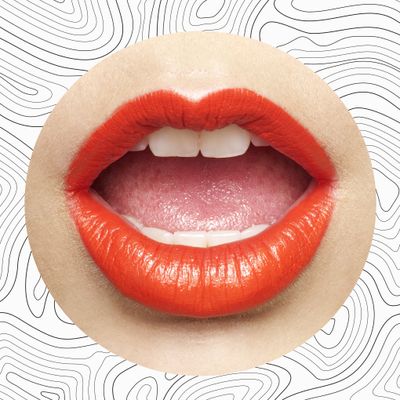
I don’t consider myself a maximalist, but I do own an electric toothbrush, coated floss, three sizes of interdental brushes, a tongue scraper, a single-tufted brush and a very specific alcohol-free mouthwash. I have no idea when it all happened, but I do know why: I kept hearing (usually on Instagram or TikTok) that I needed to take care of my “oral microbiome.”
Thanks to Big Kombucha and the probiotic trend, you’re probably familiar with the concept of your gut microbiome. But for the uninitiated: Your digestive system contains trillions of bacteria, viruses, fungi and other microorganisms that coexist in a delicate balance to regulate everything from your mental health to you skin’s sensitivity. If something happens to disturb this balance — like, say, you take a course of antibiotics — you may experience symptoms ranging from digestive issues to psoriasis. That’s why fermented foods (like kimchi, sauerkraut, and kefir) that are rich in probiotic bacteria get such high marks in health circles.
But your stomach and intestines aren’t the only places where good bacteria lives. After all, your mouth is the entry point to your gut, and — surprise, surprise — contains a similar community of important organisms that help to regulate your whole body.
“Everything is connected. We tend to think of the body as separate silos, and think of an issue as just localized to one area, so the oral microbiome was historically a bit neglected,” says Dr. Tiffany Lester, a functional-medicine specialist. “Whatever is going on in your mouth — be that teeth, gums, tongue, whatever — is vital information for clinicians to use.”
Of course, we’re all aware of the need to maintain good dental hygiene. What’s changing about that now is twofold. One, we’re understanding more about how the microbiome can impact things inside and outside our mouths. And two, the idea of “clean at all costs” is changing.
“If you have any kind of decay process in the mouth, like a cavity for example, that usually means bad bacteria are proliferating,” says Dr. Ramin Tabib, a dentist and co-owner of NYC Smile Design. When I asked whether bad breath or cavities are signs of an unbalanced gut microbiome, Dr. Tabib said it’s possible. “It’s a chicken-or-the-egg situation. They go hand in hand, and having one facilitates the other.”
In fact, some infections in other parts of your body tend to coexist with bacterial imbalances in the mouth. “Some ear infections, as well as gum disease, and some infections in the throat and ears can be a sign of problems with the oral microbiome.” says Dr. Whitney Bowe, a board-certified dermatologist who wrote a book on the gut-skin connection.
Dr. Lester adds that she now asks patients about their gums, tongue, and mouth during routine health consultations, even if they don’t mention any oral problems. “Anything from a coated tongue to sore gums, I need to know about,” she says.
Keeping balance in the microbiome isn’t just about eliminating bad bacteria, however. It’s also about letting good bacteria thrive, which brings us to public-health-enemy No. 1 for all three doctors: alcohol mouthwashes. “Almost all commercial mouthwashes are garbage,” says Dr. Tabib. “I’m talking about the ones with alcohol and sodium lauryl sulfate (SLS). These detergents absolutely blast your mouth and give you this really intense feeling of cleanliness. But it’s ephemeral. If you checked the bacterial balance in your mouth about an hour later, it would be skewed towards the bad bacteria.”
A better way to care for your oral microbiome, says Dr. Tabib, is to keep your tongue clean, which helps remove lingering bacteria that might go on to become plaque or cause bad breath. “You can purchase a special tongue scraper, or just use your toothbrush,” he says. “Your tongue is kind of like a rug. Bacteria really get into the grooves of it, and they really stay there, because they’re anaerobic and don’t need oxygen to survive.” Diet also makes a big difference. “The healthier, more varied and low in sugar your diet is, the easier it will be to maintain a healthy oral microbiome,” he adds.
Meanwhile, don’t overlook the importance of the humble toothbrush. “There’s no substitute for keeping your mouth healthy and clean through brushing and flossing,” said Dr. Tabib. “We don’t want to give plaque the chance to form and become problematic.”

